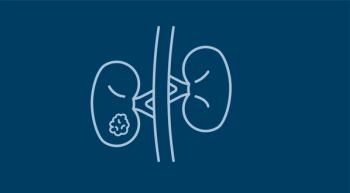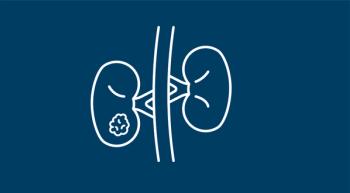
Frontline olaparib plus abiraterone/prednisone improved progression-free survival and responses in patients with metastatic castration-resistant prostate cancer compared with each of the components of the therapy alone.

Frontline olaparib plus abiraterone/prednisone improved progression-free survival and responses in patients with metastatic castration-resistant prostate cancer compared with each of the components of the therapy alone.

Patients with metastatic castration-resistant prostate cancer who were previously treated with external beam radiation therapy before radium-223 did not experience an increase in hematological toxicity compared with the overall population.

Despite germline and somatic testing being the standard of care for patients with metastatic castration-resistant prostate cancer, rates of its real-world use shows that it may be underutilized, which may negatively impact therapeutic offerings.

Darolutamide plus androgen deprivation therapy and docetaxel in patients with metastatic hormone-sensitive prostate cancer may lower hospitalization rates but marginally longer lengths of stay vs treatment with placebo, androgen deprivation therapy, and docetaxel.

Lindsay Diamond, MSN, AGNP-C, AOCNP, discusses findings from CheckMate 274 and other data presented during the 2023 ASCO Genitourinary Cancers Symposium.

Arash Rezazadeh Kalebasty, MD, discusses the rates of dose reduction and treatment discontinuation for patients with hormone-sensitive prostate cancer receiving combination therapy with darolutamide.

Michael S. Leapman, MD, MHS, highlights the need for clearer information regarding genomic testing for patients with prostate cancer.

Lindsay Diamond, MSN, AGNP-C, AOCNP, unpacks the significance of recent advances in the bladder cancer space.

Nivolumab/Cabozantinib continued to outperform sunitinib in an updated analysis of the phase 3 CheckMate 9ER trial.

Atezolizumab did not yield a significant improvement in overall survival compared with placebo plus platinum-based chemotherapy and gemcitabine in patients with untreated locally advanced or metastatic urothelial cancer.

Patients with papillary high-risk non-muscle-invasive bladder cancer whose disease was BCG-unresponsive showed continued antitumor activity with pembrolizumab monotherapy.

Extended follow-up of the CheckMate 274 trial showed continued efficacy with nivolumab in patients with muscle-invasive urothelial cancer who had undergone radical resection.

Real-world data support front-line maintenance with avelumab for patients with locally advanced or metastatic urothelial carcinoma following platinum-based chemotherapy.

The median overall survival was 42.1 months with abiraterone plus olaparib and 34.7 months with abiraterone plus placebo in patients with metastatic castration-resistant prostate cancer.

Approximately 30% of patients remained on treatment with darolutamide for over 4 years, according to a long-term safety and tolerability updated from the ARAMIS rollover study.

At a median follow-up of 24.9 months, imaging-based progression-free survival was not reached among patients with metastatic castration-resistant prostate cancer who had received talazoparib plus enzalutamide.

Preliminary findings suggest that enfortumab vedotin may be an effective treatment option for cisplatin-ineligible patients with muscle-invasive bladder cancer.

Adjuvant mitotane did not yield a significantly reduced risk of recurrence among patients with adrenocortical carcinoma.

The immunotherapy combination of nivolumab and ipilimumab elicited favorable health-related quality of life responses compared with sunitinib in patients with advanced renal cell carcinoma.

Cabozantinib is determined to be a safe treatment option for patients with metastatic renal cell carcinoma whose disease failed to respond to prior immunotherapy combinations.

Patients with 4-1BB or LAG-3–expressing T cells at baseline, or a high proportion of PD-L1–expressing myeloid cells and plasmacytoid dendritic cells during boost cycles, may be more likely to benefit from the combination of nivolumab and ipilimumab.

Adding sacituzumab govitecan to second-line pembrolizumab garnered promising antitumor activity among patients with checkpoint inhibitor–naïve metastatic urothelial cancer.

Nivolumab plus cabozantinib outperformed sunitinib in maintaining health-related quality of life in patients with advanced renal cell carcinoma.

The androgen receptor inhibitor darolutamide prolonged overall survival compared with placebo in patients with at least 6 comorbidities.

Frontline niraparib, abiraterone acetate, and prednisone yielded improved radiographic progression-free survival in patients with metastatic castration-resistant prostate cancer.